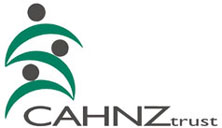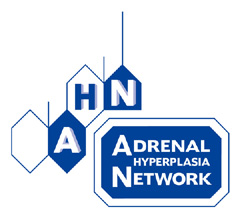2008 Symposium Overview
We had another great Symposium this year, in Brisbane. There was a good turn out of local families and interstate travellers. In particular we would like to thank the staff at the Mater Children’s Hospital for getting behind our Symposium. We had a lot of help and it was wonderful to see so much support for families with CAH.
We sold our biggest volume of books and products this year. With so many books on offer now, not having to pay for postage was a good money saver. This Symposium was also where we launched the Newborn Screening Postcard Campaign. We would like to thank everyone for taking the time out on the day to fill in those postcards plus taking additional cards.
The focus groups as usual were far too short and we will be adjusting the time allocation for future Symposiums. It is such a fantastic experience to be able to sit with other families and talk about practical life issues associated with CAH. It was also a chance for more experienced families to give advice and reassurance to newer families.
Our first speaker was Dr Andrew Cotterill from the Mater Children’s Hospital on Paediatric Endocrinology. Some of the topics covered were –
· Disorder of Sexual Differentiation (DSD)
Virilisation in females
The clinical approach to ambiguous genitalia
· What is CAH?
Diagnosis of CAH
How does it happen
What happens to the adrenal and pituitary glands
The pathways for aldosterone, cortisol and testosterone
· Statistics of CAH in Brisbane & Australia
Various reports on CAH births and newborn screening within Australia over the years would suggest that there are a reasonable number of infants not being diagnosed promptly. Sadly this is resulting in a later diagnosis which has irreversible consequences or death.
· Antenatal Treatment
Mainly Dexamethasone was covered.
Overseas studies would suggest that most mothers who had taken this treatment option would not take Dexamethasone in future pregnancies.
· Goals of Treatment
Allowing normal growth and development
Preventing adrenal crises
Blood pressure
Bone age
Identifying overtreatment and undertreatment
Results of recent data on final heights in children was very encouraging.
The overall content and interaction of Dr Cotterill’s presentation was a good mix of the medical basics and practical management of CAH.
One of the issues to come out of this session was the need for further exploration on antenatal Dexamethasone treatment and whether this is actually a viable option considering the side effects to mothers and measured benefits to female CAH babies.
Dr Kate Gibson from the Royal Children’s Hospital, Brisbane spoke on Genetics.
I would have to say from the many years of hosting these Symposiums we have never had quite the entertainment and laughter that Dr Gibson created during her session - she was absolutely fantastic.
Dr Gibson gave an informative Powerpoint presentation about CAH and genetics. The technical side was fairly easy to follow and the graphics given were very helpful.
Some of the more social and practical topics Dr Gibson covered was about the support that Genetic Services offer. Her observations and experience in what families need was refreshing and supportive.
She highlighted the benefits of genetic counselling and the need to explore all options before making decisions about testing and future pregnancies.
One important section of her presentation focused on the lack of support families can feel when making a decision that seems to go against the more popular decisions. One area she covered during this section was how families shouldn’t feel they cannot have any more children because they don’t want to utilise treatment options for future pregnancies. It is quite common for families to feel guilt or feel like they couldn’t have future pregnancies based on previous treatment options and outside influences.
An example was a family who had taken Dexamethasone for a past pregnancy but didn’t feel they could embark on another pregnancy with Dexamethasone. She pointed out that there shouldn’t be any guilt or decisions made, not to have more children should you chose not to take Dexamethasone again.
It was an excellent session and it is a little difficult to convey everything that was said. The main points though was the value in consulting with a good Genetics Counsellor and being supported in making whatever decision is going to work best for individual families.
Our Sick Day Care session run by Irene Mitchelhill, a Clinical Nurse Consultant at the Sydney Children’s Hospital Randwick, was excellent.
We’d like to acknowledge the generosity and support Irene has shown CAHSGA in coming to Brisbane just to help us with the Symposium not to mention all of the preparatory work leading up to the day as well. Thank you very much, Irene.
She started the session off with a presentation about what happens when a CAH child is sick. The processes we walked through were –
Identifying when your child is sick – signs and symptoms
What treatment is required
How to monitor your child during a sickness
Immunisation
What to do when travelling
What to do when you have forgotten a tablet
Then we went on to the practical session of Solu-Cortef injections. This was an opportunity for families to have a hands-on go at injections, walking us through the process from start to finish. It was a significant social part to the day for those who had never injected before and revision for those who had not injected for some time. It was also impressive seeing the dads and children having a go as well.
An important area for families highlighted during Irene Mitchelhill’s session was the need for our Ambulance Services nationally to include Solu-Cortef treatment for CAH patients on location. Currently there are no automatic treatment authorities for CAH patients. However there are individual arrangements that can be made on request. This is something Irene has been working on in NSW and will hopefully pave the way for the Support Group to approach nationally.
Our final session for the day was from Dr Don Perry-Keene who is a Consultant Endocrinologist in Brisbane. This session was primarily about adult care and treatment of CAH and had a lot of relevance particularly for families whose children are starting to transition to adult care from adolescent care.
He had some excellent case studies of diagnosis difficulties for adults and treatment issues for adults who had not stayed with their treatment plan. Some of the topics covered were –
CAH – an outline
Later presenting Non-classical CAH
Therapy variations
Why adults need to continue their treatment
Pregnancy planning in CAH
Psychology and sexuality
Tumours
One vital issue to come out of Dr Perry-Keene’s session was the need for parents and adult males to be aware of testicular tumours. There are still reported incidences of males being advised to have their testicles removed due to tumour masses when in fact it is merely a CAH treatment issue. It is imperative for males when consulting with urologists that there is communication also with their endocrinologists.



